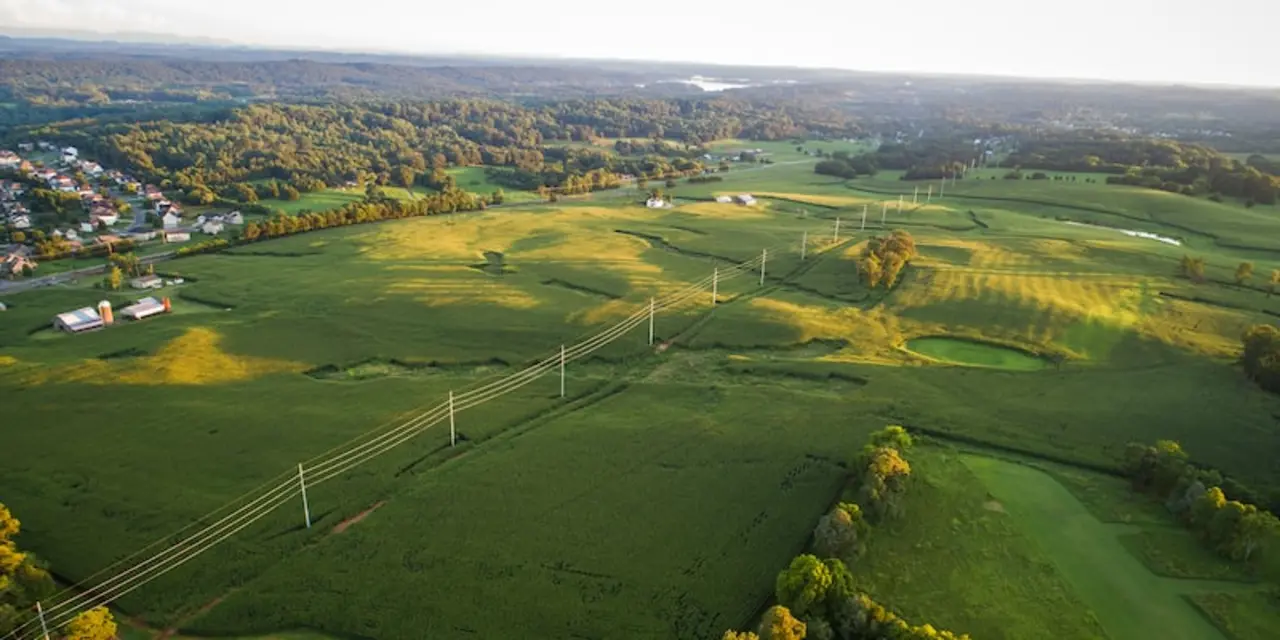Tennessee is an excellent state for aspiring farmers. With its rich and fertile soil, mild climate, and abundance of farming resources and support, it’s the perfect place to start a farm. Here are some of the benefits of starting a farm in Tennessee:
- Affordable land: Tennessee is one of the most affordable states in the US when it comes to land prices. This makes it easier for new farmers to purchase the land they need to start their farm.
- Diverse terrain: Tennessee has a wide range of terrain, from rolling hills and valleys to flat plains. This means that farmers have access to a wide range of land types and soil types, which can be beneficial for growing different crops.
- Climate: Tennessee has a mild climate with moderate temperatures throughout the year. This makes it easier for farmers to plan their crop rotation and ensure that their crops will thrive.
Tennessee is an excellent state for aspiring farmers, and there are many benefits to starting a farm in the state. With its affordable land, diverse terrain, and mild climate, it’s the perfect place to start a farm.
Tennessee has a lot of potential for successful farming. It has a mild climate, fertile soil, and plenty of land to work with. However, there are some challenges that come with farming in Tennessee. In this article, we’ll take a look at some of the challenges that come with farming in Tennessee and how to overcome them.
Soil Quality
Tennessee’s soil is generally of good quality, but some areas have soil that is not suitable for farming. This is especially true in areas with poor drainage or those that are prone to flooding. To make sure your soil is suitable for farming, it is important to test it before you begin planting. Testing can help identify any nutrients that may be lacking, as well as any potential problems with the soil.
Pest Control
Tennessee is home to a variety of pests, including insects, weeds, and disease-causing organisms. Pests can be a big problem for farmers in Tennessee, as they can damage crops and reduce yields. To keep pest populations under control, farmers should practice integrated pest management, which includes using a variety of strategies to prevent pests from becoming a problem. These strategies include using natural predators, crop rotation, and using pest-resistant varieties of crops.
Weather
Tennessee’s weather can be unpredictable and can cause a lot of damage to crops. To protect crops from extreme weather, farmers should invest in irrigation systems and other protective measures. Additionally, farmers should be aware of the forecast and be prepared to take action if severe weather is expected. This includes harvesting crops early or covering them with protective materials.
Conclusion
Tennessee is a great place to start a farm, but there are some challenges that come with farming in this state. To be successful, farmers need to be aware of these challenges and take steps to address them. With the right preparation and management, farmers can have success in Tennessee.
If you’re thinking of starting a farm in Tennessee, there are a few things you need to know before you get started. Tennessee is a great place to start a farm, but it’s important to understand the state’s unique climate and terrain before taking the plunge. Here’s what you need to know before starting a farm in Tennessee.
The Climate
Tennessee has a moderate climate, with relatively mild winters and hot, humid summers. The state also experiences a fair amount of rainfall, with an average of 49 inches per year. This makes Tennessee an ideal state for a wide range of crops, from grains and vegetables to fruits and nuts. However, the warm, wet climate can also lead to diseases and pests that can damage your crops.
The Terrain
Tennessee is made up of a mix of flat plains and rolling hills, making it easy to find land suitable for farming. The state is also home to several major rivers which can provide an ample water source for your farm. Additionally, Tennessee has a variety of soil types, ranging from sandy loams to clay loams, which can provide a good base for your crops.
The Resources
Tennessee has a wealth of resources available to help you get started. The state has several agricultural universities and research centers that can provide valuable information on farming techniques, crop varieties, and more. Additionally, the Tennessee Department of Agriculture offers a variety of resources to help farmers, including grants, loans, and marketing assistance.
Overall, Tennessee is a great state to start a farm. With its moderate climate and variety of terrain, it’s easy to find land suitable for farming. Additionally, there are plenty of resources available to help you get started. If you’re considering starting a farm in Tennessee, make sure to do your research and take advantage of the state’s resources.
